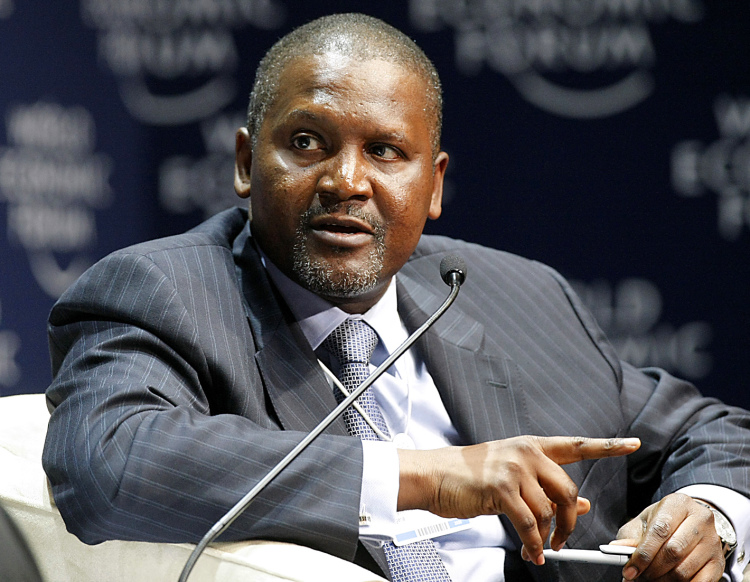President of the Dangote Group Aliko Dangote has said the private sector is key to the much touted industrial revolution, adding that his conglomerate is leading Nigeria into the new epoch through massive investment in the manufacturing sector and skill development.
During the plenary session at the ongoing 25th edition of the Nigerian Economic Summit with the title “Competing with giants”, Dangote said the theme for this year’s summit, Nigeria 2050: Shifting Gears, is apt, as Nigeria has to drive on the fast lane of industrialization.
Mr. Dangote, who was represented by the company’s Group Executive Director, Government and Stakeholder Relations, Ahmed Mansur said Nigeria and indeed Africa must take bold steps to change the narrative of industrial backwardness.
He described as unacceptable the contribution of the manufacturing sector in the country to the GDP, which currently stood at 9%, unlike in the Asian countries which stood at about 30%.
“To achieve a significant level of industrialization, this trend must be reversed.”
He said his company was already leading Nigeria into the 4th industrial revolution, adding that: “Once we catch up with 2nd industrial revolution, our entrepreneurial youth can help us leapfrog to the 3rd and 4th. This is what happened with the IT revolution in India.”
He urged government to encourage more investments from local entrepreneurs, saying the country can learn from the Korean experience where they supported a number of conglomerates.
Chairman of the Economic Advisory Council, Dr Doyin Salami, has told the federal government to get out of business and allow the private sector to the driver seat.
Dr. Salami also told the federal government that since it was wooing the private sector to take risks and invest in Nigeria’s economy, the FG must be willing to mitigate the risks businesses face.
Chairman of First Bank Plc, Mrs Ibukun Awosika, said an emergency on the education sector must be declared stressing that more than 70 percent of Nigerian students are studying courses they are not interested in but are forced on them.
She said the country must articulate, define and redefine its plan on education stressing that the gap must be closed between what is taught in schools and what industries require to achieve the needed transformation.
The Minister of Finance, Zainab Ahmed rolled out 11-point priority for economic development.
Chairman of the Nigerian Economic Summit Group (NESG), Asue Igbodalo said the partnership between the private and the public sector is key to the economic development of the country.














